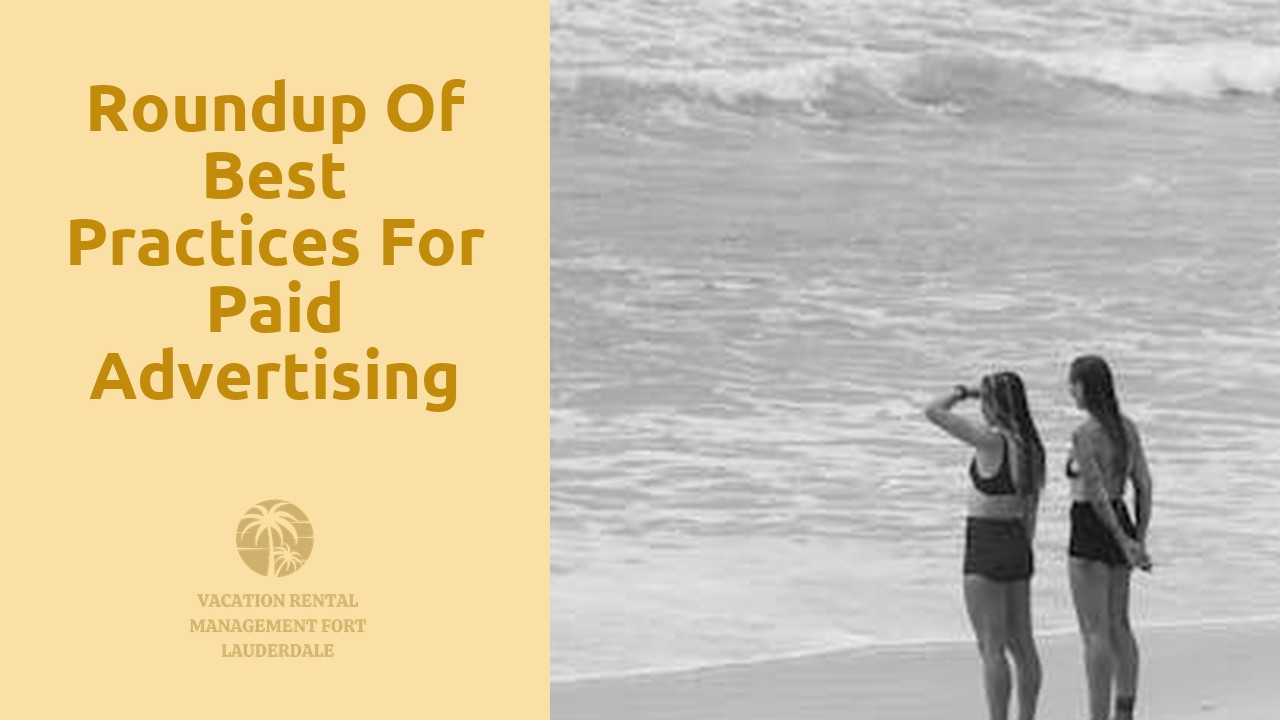
Roundup of Best Practices for Paid Advertising in Vacation Rental Management
Table Of Contents
Monitoring Ad Performance
Monitoring ad performance is a crucial aspect of any paid advertising strategy in vacation rental management. By tracking key metrics regularly, such as click-through rates, conversion rates, and cost per acquisition, property managers can gain valuable insights into the effectiveness of their campaigns. This data-driven approach allows for informed decision-making on where to allocate budget, which platforms to focus on, and what messaging resonates best with the target audience.
In addition to monitoring performance metrics, it is important to conduct A/B testing to optimize ad creative, copy, and targeting. Running multiple variations of an ad simultaneously helps in identifying what elements drive the best results and refine the overall advertising strategy for maximum impact. By continuously monitoring and testing ad performance, vacation rental managers can adapt quickly to changes in the market and stay competitive in a dynamic industry.
Analyzing Metrics and Making DataDriven Decisions
When it comes to analyzing metrics for your paid advertising campaigns in vacation rental management, it's crucial to delve into the data to make informed decisions. Start by examining key performance indicators like click-through rates, conversion rates, and return on ad spend. By understanding these metrics, you can pinpoint which strategies are yielding the best results and allocate resources effectively.
Data-driven decision-making is not just about looking at numbers; it's about interpreting them in the context of your overall marketing goals. Utilize A/B testing to experiment with different ad creatives, targeting options, and messaging to see what resonates best with your audience. Additionally, make use of tracking tools and analytics software to gather insights on customer behavior and engagement patterns. By using data to guide your decisions, you can optimize your paid advertising campaigns for maximum impact and ROI.
Budget Management
When it comes to budget management in paid advertising for vacation rental management, it's essential to strike a balance between investing enough to reach your target audience effectively and ensuring that you stay within your financial constraints. Setting a clear budget allocation is a crucial first step in this process. By clearly defining how much you are willing to spend on different platforms and campaigns, you can avoid overspending while still maximizing your reach and impact.
Moreover, regularly monitoring your ad performance and adjusting your budget allocations accordingly can help you optimize your spending. Analyzing metrics such as click-through rates, conversion rates, and cost per acquisition can provide valuable insights into which campaigns are delivering the best results. By reallocating funds to the most effective channels and fine-tuning your targeting based on data-driven decisions, you can make the most out of your advertising budget and drive better returns on investment.
Strategies for Maximizing ROI Within Budget Constraints
When aiming to maximize ROI within budget constraints in paid advertising for vacation rental management, a strategic approach is crucial. One effective strategy is to focus on highly targeted campaigns that reach the most relevant audience for your vacation rental properties. By honing in on specific demographics, interests, and behaviors of potential guests, you can optimize your ad spend to generate higher conversion rates and ultimately increase ROI.
Another key tactic for maximizing ROI within budget limits is to regularly analyze the performance of your campaigns and adjust accordingly. By closely monitoring metrics such as click-through rates, conversion rates, and cost per acquisition, you can identify underperforming ads or channels and reallocate your budget to those that are delivering the best results. This data-driven approach allows you to continuously optimize your advertising efforts, ensuring that you are getting the most out of your budget and driving maximum ROI for your vacation rental business.
Adapting to Trends
Staying ahead of the curve is imperative in the world of vacation rental management advertising. Trends in the industry can shift rapidly, making it crucial for businesses to remain adaptable and proactive. One key strategy for adapting to trends is to continuously monitor consumer behavior and preferences. By staying attuned to what resonates with potential guests, vacation rental managers can tailor their advertising efforts to align with current demands and interests.
In addition, fostering a culture of innovation within the marketing team can help vacation rental businesses stay ahead of the competition. Encouraging creative thinking and brainstorming sessions can lead to fresh ideas and unique approaches that set a company apart in a crowded marketplace. By embracing change and being open to new strategies, vacation rental managers can position their properties as attractive options for travelers seeking memorable and unique accommodation experiences.
Staying Ahead of Industry Changes to Maintain Relevance
One crucial aspect of effectively managing a vacation rental advertisement strategy is the ability to anticipate and adapt to industry trends. In the ever-evolving landscape of vacation rental management, it is vital for professionals to stay ahead of the curve and proactively respond to changes. By closely monitoring emerging trends, industry innovations, and consumer behavior patterns, vacation rental managers can position themselves to maintain relevance and effectively reach their target audience.
Moreover, actively engaging in industry networks, attending conferences, and staying informed through relevant publications can provide valuable insights into upcoming trends. Collaboration with industry experts and thought leaders can also offer fresh perspectives and innovative strategies to stay competitive in the dynamic vacation rental market. Keeping an open mind to new ideas and approaches while maintaining a pulse on industry shifts will allow vacation rental managers to navigate changes successfully and sustain their relevance in the ever-changing landscape of the vacation rental industry.
Related Links
Review of Popular PPC Tools for Vacation Rental ManagementWhy Paid Advertising is Crucial for Vacation Rental Owners
Why PPC is Essential for Vacation Rental Management
How to Optimize PPC for Vacation Rental Management
Top 10 Paid Advertising Platforms for Vacation Rentals